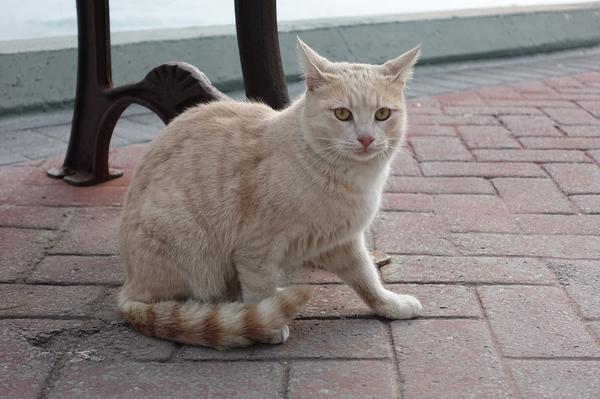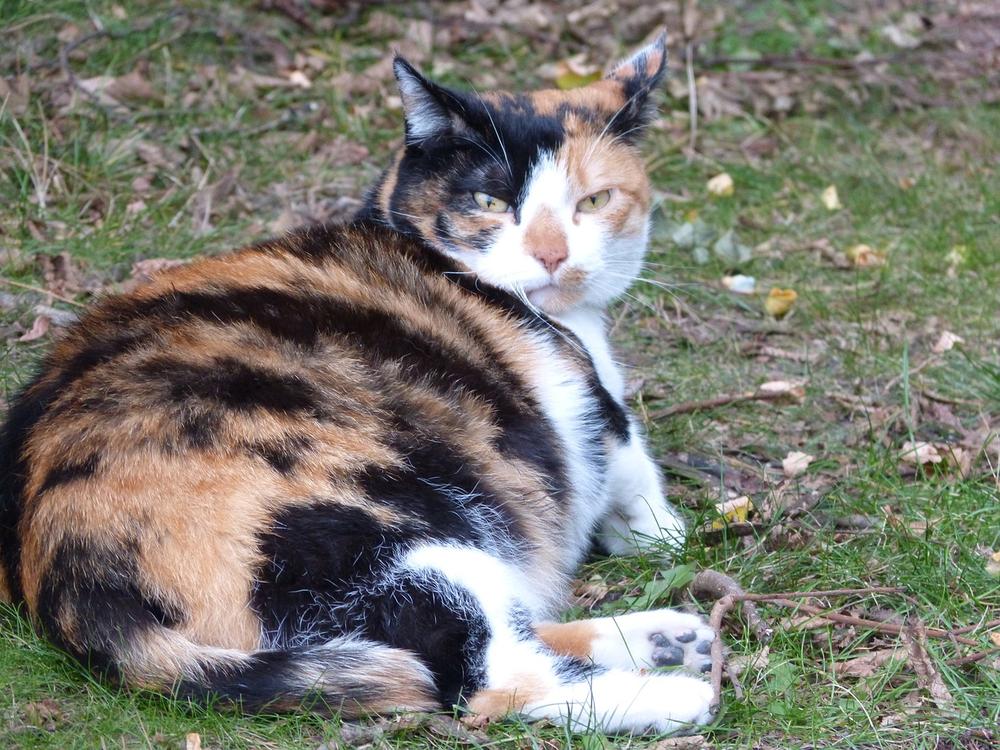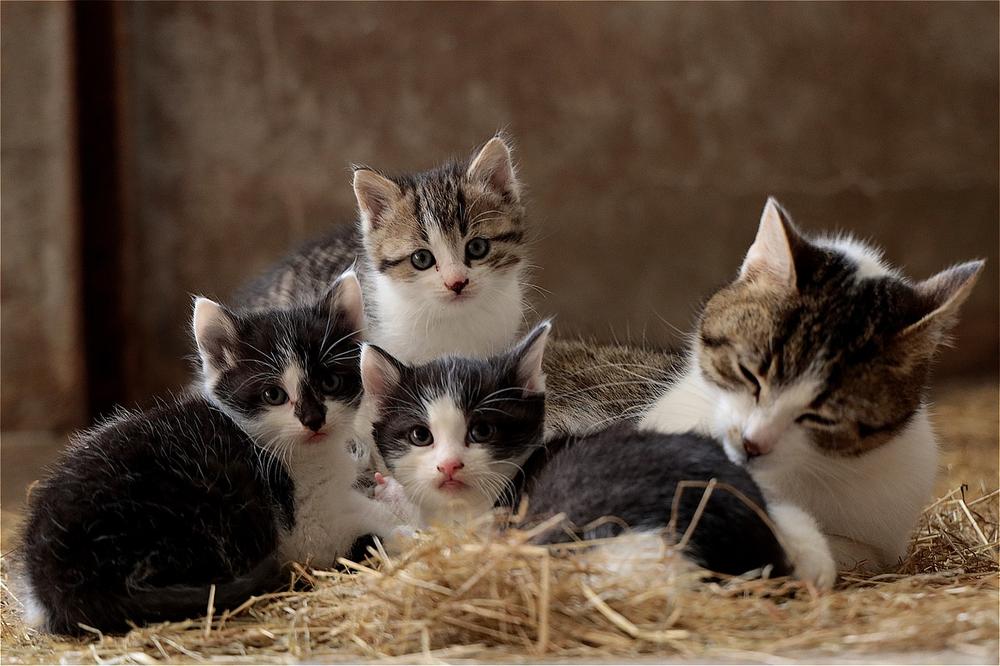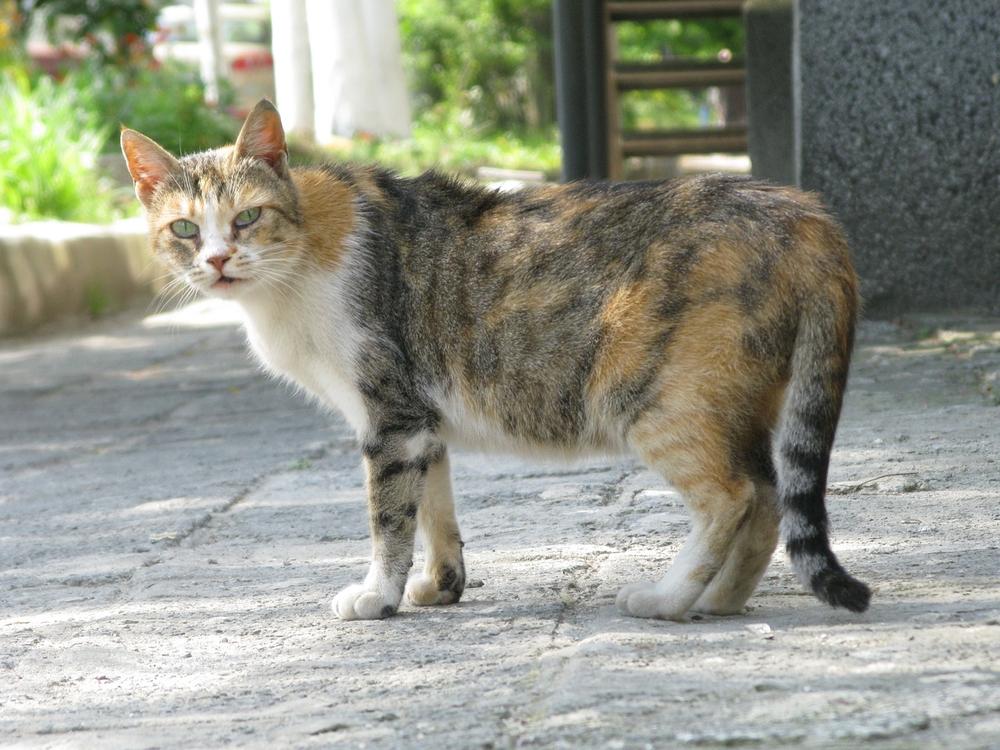Why Is My Pregnant Cat Not Eating? (Reasons & Fixes)

So, your pregnant cat isn't eating, huh?
Well, buckle up, because we've got a problem on our hands. 😱
If you ignore this issue, you could be inviting a whole world of trouble.
We're talking about a potentially frail mama cat and unhealthy kittens.
And let's not forget the guilt and worry that will consume you.
But fear not!
Today's guide is here to help you navigate this hairy situation.
Let's find out why that kitty bowl is being ignored and get our feline friend back on track.
Ready?
Let's dive in!
Why Is My Pregnant Cat Not Eating?
Loss of appetite is common in pregnant cats
When a cat is pregnant, she might not feel like eating.
It's normal because of all the hormonal changes happening.
These changes can mess with her appetite and make it fluctuate or even disappear completely.
Usually, this happens around the third week of pregnancy.
There are a few reasons why your pregnant cat might not be into food.
She could be feeling anxious or stressed because being pregnant can be tiring.
The hormonal changes can also affect her appetite.
Don't ignore a lack of appetite during pregnancy
But hold on!
Even though it's normal for a pregnant cat to eat less, don't ignore it. There might be other causes behind her loss of appetite.
For example, she could be dealing with morning sickness just like humans do. Or maybe she's feeling uncomfortable or in pain because, let's face it, pregnancy isn't always comfortable.

You won't believe this, but some pregnant cats stop eating so they don't gain too much weight!
Here's what you need to know:
Not eating enough can lead to complications, both for the mama cat and her owner.
And we definitely don't want that to happen!
Some pregnant cats simply lose interest in food
Believe it or not, there are some pregnant cats who just lose interest in food.
It sounds strange, right?
Maybe their taste buds changed or something. Who knows?
The important thing is that it's not unusual. But still, keep an eye on her health and ensure she's getting the nutrition she needs for a healthy pregnancy.
So there you have it, my friend!
A loss of appetite during pregnancy is normal for our feline friends. But don’t ignore it completely...
If you notice any concerning signs or if the loss of appetite continues, it’s best to consult with a veterinarian for further guidance.
Do Cats Stop Eating Before Giving Birth?
You wanna know if cats stop eating before they have their kittens?
Well, here's what you need to understand:
- When it's getting close to her due date, a pregnant cat's instincts kick in and she starts focusing on finding a safe spot for her babies. This can make her less interested in food. Look out for signs of nesting, like rearranging bedding or searching for a quiet spot.
- A decrease in appetite is usually a sign that labor is coming soon. But remember, all cats are different. Some may keep eating until the moment they give birth. Keep an eye on your cat's behavior and watch for restlessness or unusual sounds.
- If your cat is already eating regularly, she'll probably keep doing so until her kittens are ready for solids. So don't panic if you see her at the food bowl – she still needs nourishment during this time.
- It's crucial to create a comfortable environment for your cat to give birth. Set up a birthing box with soft bedding and put it in a quiet area of your home. This will help her feel secure and promote bonding with her newborns.
Every cat is different, so pay attention to your cat's behavior and talk to a vet if you have any concerns. 😺

And here's what you really need to please bear in mind...
Limited energy reserves are a concern for pregnant cats, so it is crucial not to let them go without food for too long.
Let me explain further...
How Long Can Pregnant Cats Go Without Food?
Pregnant cats need constant nourishment to maintain their energy levels, just like humans.
Remember, going without food for too long can seriously deplete their limited energy reserves. This can have a negative impact on both the mother cat and her growing kittens. That's why it's crucial not to let pregnant cats go hungry for more than 72 hours.
So, ensure you provide them with regular meals to keep them healthy and support the proper development of those tiny feline bundles of joy.
Feeding Guidelines for Pregnant Cats
Feeding pregnant cats can be a delicate task.
You need to manage appetite, food preferences, and nutritional needs all at once.

Here are some tips to help you navigate this challenging period:
- Offer frequent, small meals throughout the day to prevent overwhelming the cat and ensure a steady supply of nutrients.
- Monitor weight loss during pregnancy and adjust the feeding accordingly. Add more food or mix wet and dry food if there is a loss of appetite.
- Adding broth to dry food, offering canned cat food, and feeding smaller meals can help alleviate morning sickness and nausea.
- Gradually transition to new food options that are calorie- and protein-rich to meet the cat’s nutritional needs.
- Avoid high mercury content fish and consider supplementing the cat’s regular food with kitten food formula.
- Provide premium cat food, possibly supplemented with prenatal vitamins, to meet the increased caloric needs and specific nutritional requirements for the developing kittens.
- Create a calm environment by monitoring weight and overall health.
- Ensure adequate hydration by having fresh water always available and offering enticing options like diluted broth or chicken stock if needed.
The well-being of your pregnant cat and her developing kittens will be ensured if you adhere to these instructions.
And if you're worried about your pregnant cat's hydration during this critical time, I invite you to find some answers in my article on why your cat won't drink water from her bowl.
When Should You Consult Your Vet?
You gotta keep a close eye on how your pregnant cat eats.
Here's some signs that tell you it's time to hit up the vet:
- If your cat ain't interested in food for too long, there could be something seriously wrong and you shouldn't ignore that.
- If your cat starts puking, having nasty diarrhea, or acting super tired, you gotta get them to the vet pronto. 😷
- Going to see the vet regularly while your cat is pregnant is important to make sure both mama cat and her babies stay healthy.
- Always remember that getting personalized advice from a vet is the best way to take care of your cat's health.
- If your cat skips meals for more than two days, don't wait around. Call up the vet and set up an appointment to check for any problems.
- Not eating during pregnancy is no joke; it can be deadly. So, be smart and talk to a vet right away if your cat stops eating.
Ensuring the welfare of your pregnant feline and her valuable offspring is assured when you adhere to these instructions.
Summing it up
Key takeaways:
- Loss of appetite is common among pregnant cats.
- Decreased appetite around the third week of pregnancy is normal.
- Lack of appetite during pregnancy can have various causes such as hormonal changes, morning sickness, stress, or discomfort.
- Some cats may stop eating to avoid gaining weight, but this can lead to complications.
- Cats may stop eating before giving birth, but it's not a guarantee.
- It is recommended that pregnant cats don't go without food for more than 72 hours.
- Feeding guidelines involve managing appetite and providing high-quality, calorie- and protein-rich options.
- Regular vet check-ups are crucial for the health of the cat and her unborn kittens.
- Seek immediate veterinary attention if the cat's appetite loss is accompanied by vomiting, diarrhea, or lethargy.
- Not eating while pregnant can be serious and potentially fatal, so seek medical advice promptly.
And that wraps up today's article.
If you wish to read more of my useful articles, I recommend you check out some of these: How Long Can a Cat Go Without Water, What Happens if Your Cat Eats or Licks Toothpaste, Did I Put My Cat to Sleep Too Soon, Why Is My Cats Nose Cold, and Is Dracaena Toxic to Cats
Talk soon,
-Sarah Davis